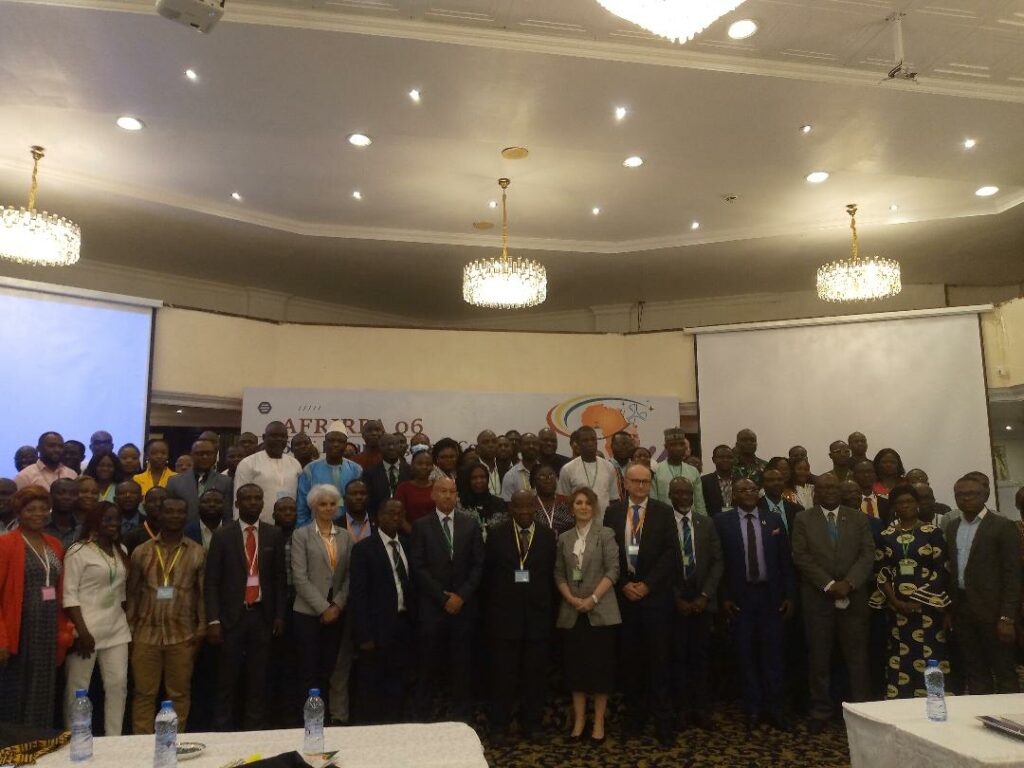Ghana commits to ensuring radiation protection, safety
 The government of Ghana has reiterated its commitment to deepen support for protecting humanity and the environment from the harmful effects of cutting-edge technologies.
The government of Ghana has reiterated its commitment to deepen support for protecting humanity and the environment from the harmful effects of cutting-edge technologies.
Mr Kwamena Essilfie Quaison, the Director of the Science, Technology and Innovation Directorate of the Ministry of the Ministry of Environment, Science, Technology and Innovation (MESTI), who made the statement in Accra, said government fully supported and shared in the vision of protecting people and the environment, and would do all in its power to help achieve that dream.
He was addressing the 6th African Congress of the International Radiation Protection Association (AFRIRPA‘06) underway in Accra, on the theme: “Embracing Radiation Protection Education and Safety Culture”.
It is being organised by the Ghana Association of Radiation Protection (GARP) in collaboration with the International Radiation Protection Association (IRPA), International Atomic Energy Agency (IAEA), World Health Organisation (WHO), the United Nations Scientific Committee on the Effects of Atomic Radiation, and the International Commission on Non-Ionizing Radiation Protection.
Over 150 participants, including scientists, regulators, operators, technical service providers, academics, students and policy makers, from Ghana, Ethiopia, Kenya, Cote d’Ivoire, Sudan, Angola, Cameroun, Nigeria, Burkina-Faso, and Tanzania, with some expert from Germany and Hungary, are benefitting from intensive exchange of experimental knowledge and skills through appropriate networking and presentations of scientific papers,and posters from experts across Africa and beyond.
Mr Quaison said maintaining excellence in radiation protection education and safety culture amid emerging technologies was key, especially as Ghana sought to add Nuclear Power Plant technology in her energy mix.
He urged radiation protection professionals and tertiary institutions into health physics studies to enhance research and be innovative in linking up with industry and the corporate world to actualise study findings for the development of society.
Professor Cyril Schandorf, who chaired the Congress, commended the organisers and said with current technological development and application of radiation in major nuclear fields such as medical, research as well as industry, it was important to embrace all aspects of scientific advancement in radiation protection and safety culture to prevent people and the environment from hazards from the improper use of radioactive sources.
Prof. Schandorf was passionate about maintaining inter-generational continuity regarding attracting young scientists and physicists, observing that, “there seems to be a gap here,” and called for a clearer plan to retain rare resources, and to encourage more females to do sciences.
Prof. Samuel Boakye Dampare, the Director-General of the Ghana Atomic Commission (GAEC), said although among the various strategies proposed by the IAEA for the management of radiation exposure, education and training seemed to have a strong impact on radiation protection, some practitioners appeared to lack knowledge in basic international safety culture.
He explained that like any energy source, radiation had both positive and negative sides, and that the idea was to train highly qualified professionals, including young ones, for continuity in protecting occupationally exposed workers, and the public from harmful ionizing and non-ionizing radiation sources.
Therefore, the establishment of an accreditation and certification system in radiation protection education and training for all professionals employing ionizing radiation was considered as high priority, thus the Graduate School of Nuclear and Allied Sciences (SNAS) of the University of Ghana, recognised by the IAEA since 2006, had remained a major player as a Centre of excellence for training radiation protection practitioners for the country and Africa.
“I will charge us all to identify the obstacles to embracing radiation protection training and safety culture and seek to find answers to them in this congress and beyond,” he said.
Dr Bernard Le Guen, the President of the International Radiation Protection Association, said maintaining high skilled technicians and young professionals for quality service provision and the management of new technologies, particularly in the medical and industrial sectors was crucial for Ghana, Kenya and other African countries, that would have the opportunity to develop nuclear energy programmes.
Dr Francis Kasolo, the WHO Country Representative, affirmed the commitment of the Organisation towards global health safety, and encouraged countries globally to collaborate with the IAEA in its new project to establish and expand radiotherapy services for research and treatment, to reduce the burden of Non-Communicable Diseases.
Source: GNA
